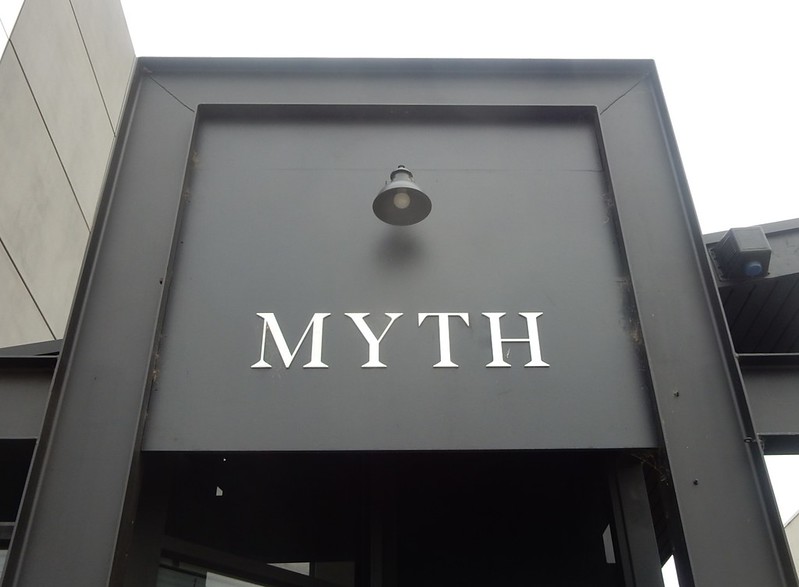
Every negotiator wants to become a better negotiator. We are always searching for the next book to read, the next YouTube video to watch, or the next negotiating seminar to go to that will help us to develop our negotiation styles and negotiating techniques. However, if you take a step back you might be surprised at what you find. What has been holding you back from becoming a better negotiator may not be what you don’t already know, but rather what you think that you do know. What I’m talking about are the myths about negotiating that we all seem to accept as facts. It turns out that these myths might be what is preventing you from becoming a better negotiator.
Myth #1: All Great Negotiators Are Born That Way
Let’s face it – we’re all born with varying abilities for almost any skill that can be imagined. However, we need to realize that our social environment and education have a tremendous impact on what we are able to achieve. The people who study negotiations recognize that we enter each negotiation with different capabilities. They also understand that all negotiators can gain confidence and competence. The belief that one is either born a great negotiator or not, can stand in the way of our learning to become a better negotiator.
Myth #2: In Negotiating, Experience Is A Great Teacher
If you want to find classic quotes about learning things, then you don’t have to look any further than Benjamin Franklin who once remarked that “experience is a dear teacher”. This is a saying that has been read as an excuse to learn – and make mistakes – while on the job. However, if you go back and put his comments in context, Franklin was calling experience a very expensive way to learn. When negotiators test their skills at work, they can harm their employers in the process. So what are our alternatives? A better way of becoming a better negotiator is to spend time in simulated negotiations. One prime benefit of simulation-based negotiation activities is that they allow negotiators to learn from experience in a risk-free setting.
Myth #3: Good Negotiators Are Always Taking Risks
I think that we can all agree that we all take risks. The good news is that many of them beneficial. Unfortunately, all too often there are situations where negotiators justify risk taking when they’re trying to act tough. Their hope is that that the other side will cave in to them. The problem is that such hard-line gambles rarely pay off; the other side is likely to become equally stubborn, and you’ll both miss out on smart trades. In our uncertain world, we should take risks only when the benefits appear to outweigh the costs.
Myth #4: Good Negotiators Always Rely On Their Intuition
The good news about intuition is that it can yield novel strategies. However we need to understand that unwavering trust in one’s gut can be extremely costly during a negotiation. The human mind is hard-wired with an array of systematic biases that we use every day. The wise negotiator tests their intuition against objective data, consults with independent advisers, and thinks through the negotiation before taking their place at the table.
What All Of This Means For You
You are a good negotiator. Now you want to become a better negotiator. How can you go about doing that? While getting more principled negotiation training is always a good move, it turns out that there is something else that you can do that can provide you with immediate benefits. You need to change the way that you think. Specifically, you need to find a way to do away with four of the most common myths that all negotiators believe.
We all wish that we were better negotiators. We tend to think that that the really good negotiators that we know were just born that way. It turns out that we can become better by taking the time to learn what we don’t already know. Many people believe that experience is a great teacher for negotiators. However, experience can be an expensive way for a negotiator to learn. Risk is a part of every negotiation. However, the best negotiators know when to take risks and when not to. Our intuition can help guide us through a negotiation. However, we need to know when to trust it and when to go against it.
In order to become better negotiators, we need to take the time to cast off our old ways of thinking. We need to understand that what we are bringing into our next negotiation needs to help us to get the deal that we are looking for, not hold us back. If we can understand that the myths that we have treated as being fact are in fact myths, then we can start to become better negotiators.
– Dr. Jim Anderson
Blue Elephant Consulting –
Your Source For Real World Negotiating Skills™
Question For You: What’s the best way to detect when you are believing a myth about negotiating that is not true?
P.S.: Free subscriptions to The Accidental Negotiator Newsletter are now available. Learn what you need to know to do the job. Subscribe now: Click Here!
What We’ll Be Talking About Next Time
Let’s face it, during a negotiation things don’t always go our way. When this happens, we can become upset. If we become really upset, then we may become angry. If we become angry, then our anger is probably going to get expressed in how we go about negotiating. The other side is going to see that we are angry and they are going to react to it. This can change the whole nature of your negotiation. What’s the best way to deal with your anger during a negotiation?

